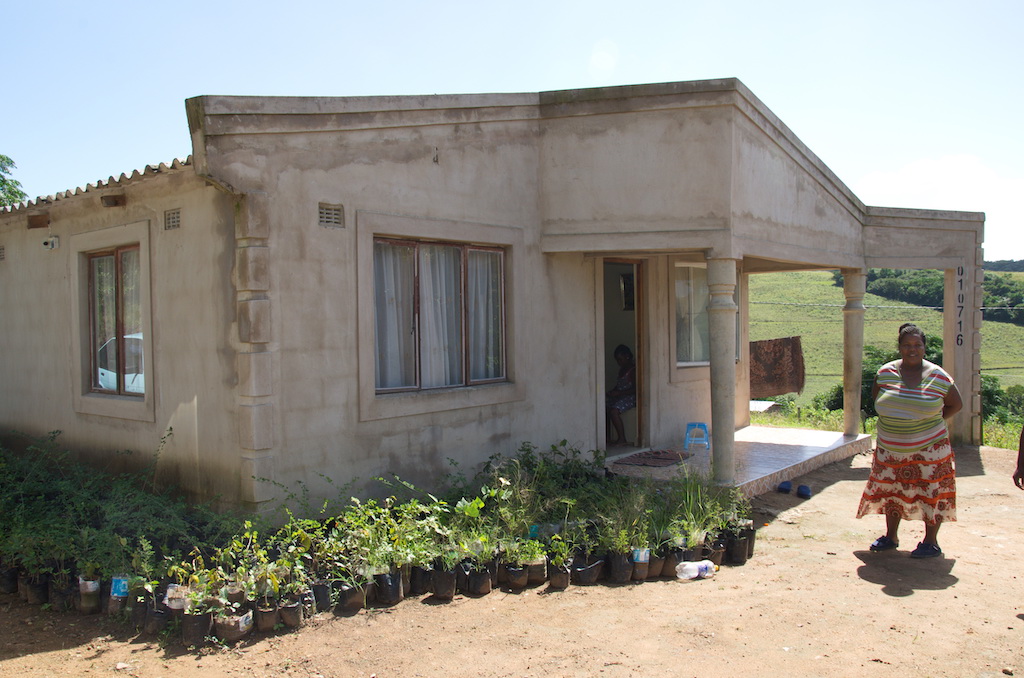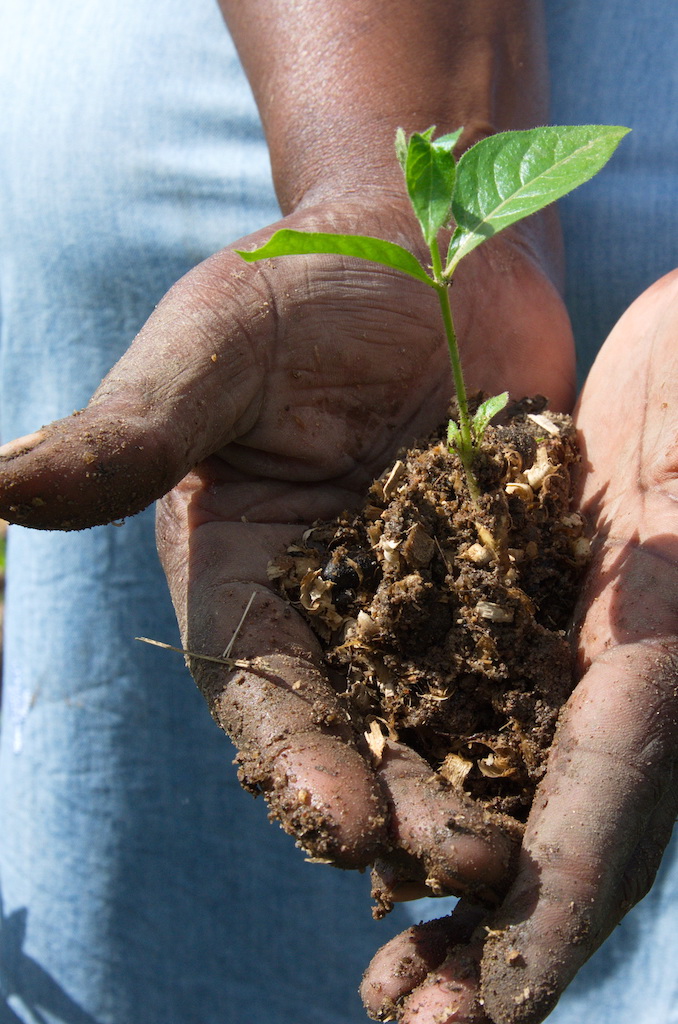Shaping change - Towards the eThekwini Municipality’s community ecosystem-based adaptation (CEBA) programme
Tree-prenuer, Thandiwe Mthalane, traded many of her trees for bricks to help finish building her house.
Errol Douwes
Trees bring hope, and income, to local community members.
Errol Douwes
The Durban CEBA initiative has expanded on the original ecosystem management, and reforestation approaches. This was done by embracing a more holistic understanding of the link between communities and the ecosystems that underwrite their welfare and livelihoods, especially in the face of climate change risks. It involves climate-relevant knowledge transfer, creating local jobs and developing small businesses, all of which help to ensure cleaner, greener and more sustainable neighborhoods. As a result, communities become less dependent on costly utilities and services, and through their direct participation, they become joint owners of a new green economy sector in Durban. Key elements include:
- The management and/or restoration of local ecosystems. This is primarily through improving, for example, river flow regulation and erosion control, which can boost climate change adaptation and disaster risk reduction.
- Ensuring communities understand climate change related risks and how to adapt to and better manage climate related disasters.
- The upliftment of local communities through the establishment of “green jobs” for the poor and unemployed.
- The establishment of delivery partnerships between the eThekwini Municipality, other spheres of Government, Businesses, NGOs and local communities.
- Ongoing learning process - integration of lessons learnt from local projects, such as the Buffelsdraai Landfill Site Community Reforestation Project and other pilot measures in the Municipality.
- Framing biodiversity as bio-infrastructure helped to put EbA at the heart of the development debate.
- Support from politicians and leaders within the municipality.
- Experience with the ongoing development of Durban’s Municipal Climate Protection Programme indicates that achieving EBA in cities means moving beyond the conceptualization of a uniform one-size-fits-all approach, of street trees and parks, to a more detailed understanding of the complex ecology of indigenous ecosystems and their resilience under climate change conditions. When healthy, these systems deliver better ecosystem services, as well as jobs for people employed to management them.
- It also means engaging with the role that this “bio-infrastructure” plays in shaping the quality of life and socioeconomic opportunities of the most vulnerable human communities.
- Despite the long-term sustainability gains of this approach, implementation in Durban has been shown to be both technically challenging and resource intensive.
- Large-scale EbA implementation will require changes in the roles, responsibilities and functions of existing local government institutions.
(Roberts et al. 2012)


